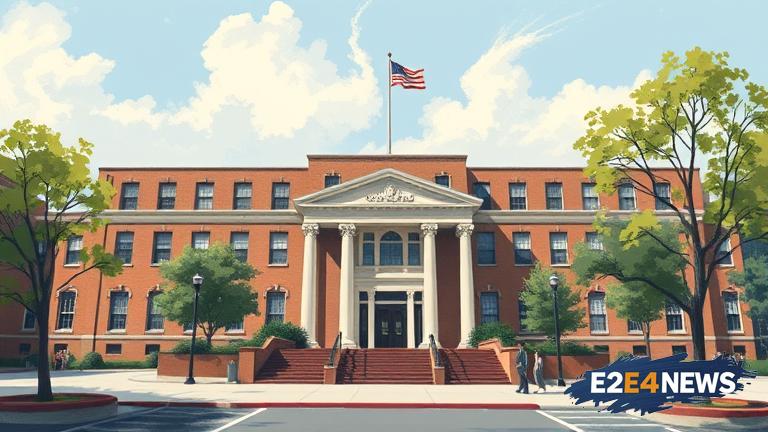The New York City Council has introduced a bill that would mandate the construction of new courthouses and medical clinics across the city. This initiative aims to address the long-standing issue of inadequate public facilities, providing better access to justice and healthcare for residents. The proposed bill would require the city to allocate funds for the construction of these facilities, ensuring that they are built in a timely and efficient manner. The council members behind the bill argue that the current state of courthouses and medical clinics is unacceptable, with many facilities being outdated and overcrowded. The new courthouses would provide a more efficient and effective justice system, while the medical clinics would offer essential healthcare services to underserved communities. The bill has garnered support from various community groups and organizations, who believe that it would have a positive impact on the city’s infrastructure and public services. However, some critics have raised concerns about the cost of the project, arguing that it could be a significant burden on taxpayers. Despite these concerns, the council members remain committed to pushing the bill forward, citing the importance of investing in the city’s future. The construction of new courthouses and medical clinics would not only improve public services but also create jobs and stimulate economic growth. The bill is currently in the committee stage, where it will undergo review and debate before being put to a vote. If passed, the bill would mark a significant milestone in the city’s efforts to modernize its infrastructure and improve the quality of life for its residents. The NYC Council has a long history of introducing innovative bills aimed at addressing the city’s most pressing issues, and this proposal is no exception. The council members have conducted extensive research and consulted with experts to ensure that the bill is well-informed and effective. The proposed courthouses and medical clinics would be designed with sustainability and accessibility in mind, incorporating green technology and features that cater to people with disabilities. The bill also includes provisions for community engagement and participation, ensuring that the facilities are tailored to meet the specific needs of each neighborhood. Furthermore, the construction of these facilities would provide an opportunity for the city to invest in emerging technologies, such as telemedicine and digital court systems. The NYC Council’s proposal has sparked a wider debate about the role of government in providing public services and infrastructure. While some argue that the private sector should take the lead in providing these services, others believe that the government has a responsibility to ensure that all citizens have access to essential facilities. The bill has also highlighted the importance of collaboration between different government agencies and community organizations. By working together, the city can leverage resources and expertise to create more effective and efficient public services. In conclusion, the NYC Council’s proposal to construct courthouses and medical clinics is a significant step towards improving the city’s infrastructure and public services. While there may be challenges and concerns, the potential benefits of this initiative make it an exciting and worthwhile project. As the bill moves forward, it will be important to monitor its progress and ensure that it is implemented in a way that is transparent, accountable, and responsive to the needs of the community.





